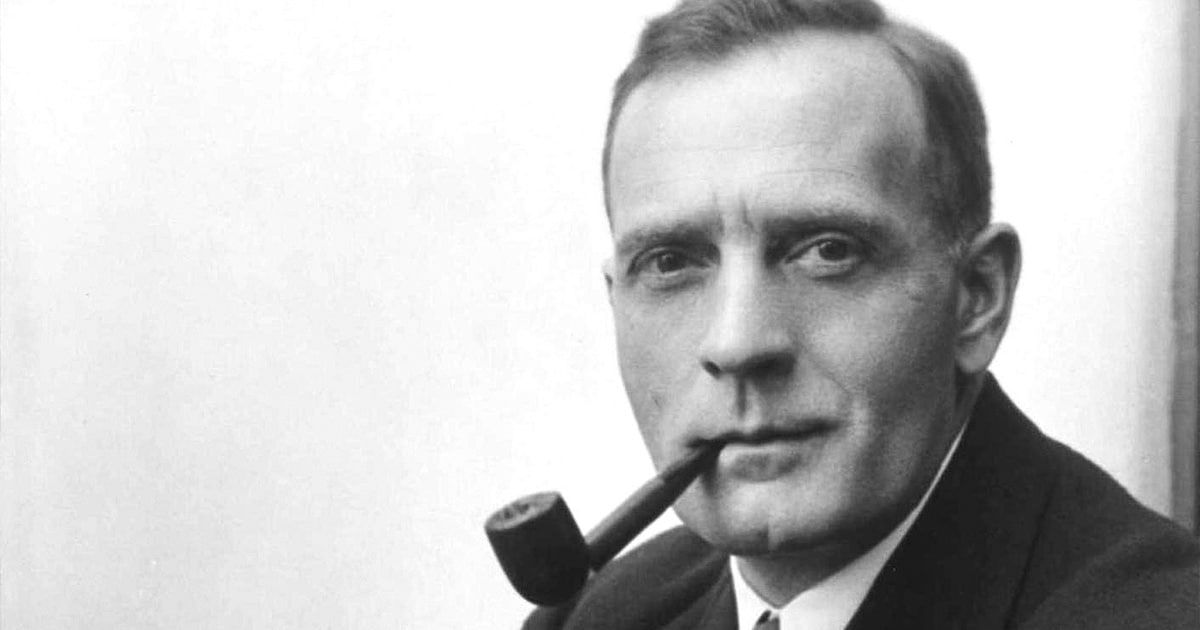The Men Who Actually Discovered the Big Bang
New book explores the forgotten figures behind one of the greatest scientific discoveries in history.Editor’s note: Discovery Institute Press is delighted to announce the publication of The Big Bang Revolutionaries: The Untold Story of Three Scientists Who Reenchanted Cosmology, by Jean-Pierre Luminet. The book has received rave reviews including from three Nobel Prize winners. The following is an excerpt from Chapter 1.
The purpose of this book is not to exhaustively survey the history of cosmology through the centuries, nor that of the few decades that saw the development of relativistic cosmology. The available studies on the subject are numerous, and some are of high quality. I propose instead to present and analyze the texts that originated the three main ideas of relativistic cosmology:
- the expansion of the universe
- a possible singular origin of the universe
- the existence of a cosmic background radiation, a fossil memory of the origin.
These texts are the work of three pioneers who, armed only with their “pens” and brilliant intuition, unveiled this new vision of the world: Alexander Friedmann (1888–1925), Georges Lemaître (1894–1966), and the Russian-American George Gamow (1904–1968). At least three of their texts, the first published in 1922, the second in 1931, and the third in 1948, make them the real “fathers” of the Big Bang.
An Anomaly of History
One of the anomalies of recent scientific history is that in the minds, and under the pen, of many widely read scientific writers, the concepts of the expanding universe and the Big Bang are attributed to two other, very famous, men of science: Edwin Hubble (1889–1953) and Albert Einstein (1879–1955). However, although Hubble did indeed experimentally demonstrate the linear relation between the spectral redshift of galaxies and their distance from us, he neither discovered such systematic spectral shifts (the discovery goes back to the American Vesto Slipher), nor did he accept the relativistic interpretation of his observations, i.e., the expansion of space itself instead of the mere motion of galaxies.

As for Einstein, the inventor of the theory of relativity, we will see how he rejected for more than ten years the idea of an expanding universe — apparently on the basis of philosophical prejudices. And he stopped working in the field as soon as, faced with observational evidence, he had to amend his opinion.
That Friedmann and Lemaître are virtually unknown to the general public is one thing. The underestimation of their scientific contribution by the community of physicists, and even by astrophysicists and cosmologists, is another. It is very surprising if one considers that the concepts they promulgated will remain among the most remarkable achievements of twentieth-century science. Yet the Biographical Encyclopedia of Scientists grants only short notices to Friedmann and Lemaître; the French dictionary Inventeurs et Scientifiques quotes Lemaître but not Friedmann; and although the most serious and complete compilation of this type, the Dictionary of Scientific Biography, devotes an article to each, the development is more than modest in view of the scope of their work. Gamow is better off. He is widely quoted in all the above-mentioned works, and even some of the general public know his name thanks to the popular books he wrote (translated into many languages).
In Anglo-American Literature
To be sure, Friedmann and Lemaître receive some recognition outside the encyclopedias and specialized dictionaries. In Anglo-American literature, Friedmann’s name is attached to the generic Big Bang models — most often alongside those of Howard P. Robertson and Arthur G. Walker in the so-called “FRW models.” Lemaître’s name is the least familiar of the three, although the term “FLRW models” is increasingly used. Indeed, a Georges Lemaître International Cosmology Prize was created in 1997, of which the 2019 Nobel Prize-winning physicist P. J. E. Peebles was the first recipient (and the present author the third recipient). And in 2018, the members of the International Astronomical Union voted to recommend renaming the Hubble law as the Hubble-Lemaître law . Notwithstanding all this, the respective reputations of Lemaître, Friedmann, and Gamow are inversely proportional to the importance of their cosmological work.
There are many possible reasons for this situation. Some might point to the language barrier. Friedmann published his works in German or Russian, and most of Lemaître’s articles were written in French. However, Einstein and the French physicist and mathematician Henri Poincaré, to name but two examples, also expressed their fundamental results in their native language, and they are no less recognized because of that.
Perhaps of greater relevance, Friedmann and Lemaître do not belong to the “Anglo-American Empire,” a fact that today constitutes a serious handicap in gaining international scientific recognition, whether in life or posthumously. (Gamow settled in the United States in 1934.)
Certainly, too, the historical record can be distorted by this or that influential chronicler. For instance, an article on relativistic cosmology published by American physicist Howard Robertson in 1933, while otherwise excellent, was misleading about the contemporary history it described. In suggesting that the concept of an expanding universe was already accepted, it reflected more the secret wish of its author than a historical objectivity.
A Case of Acute Neglect
As for the particularly acute neglect of Lemaître, note that Soviet authors such as Friedmann and Gamow have been the object of more attention from American scientists than French-speaking authors such Lemaître have been. A first and obvious reason is that Soviet scientific production was much greater than that of French-speaking scientists. But political and ideological motives also played a role. From the advent of Soviet communism, which threatened the values of American capitalism, and even more so during the Cold War period, American researchers paid particular attention to the work of their adversaries. Moreover, after the collapse of the Soviet regime, most of Russia’s best physicists had to emigrate to continue working in their field, and the United States created positions capable of absorbing this sudden influx of high-level researchers.
In addition to these general reasons, there are specific reasons. Friedmann died prematurely, even before astronomical observations could support his thesis. Were it not for his early death, one wonders how far the Russian scientist would have pushed his investigations in relativistic cosmology. As far as Lemaître is concerned, even though he initiated the first two conceptual advances mentioned above, his specialty as a mathematician and his religious commitment undoubtedly crystallized professional resistance to him among physicists and astronomers. As for Gamow, if his contributions to various scientific fields (nuclear physics, astrophysics, cosmology, and even genetics) are not recognized for their true value, it is, according to his closest collaborators, Ralph Alpher and Robert Herman, in some measure due to his irrepressible sense of humor and his very free and detached conception of life in general (and of science in particular), which have led many perhaps humorless scientists to take his research work less seriously than it deserves.
